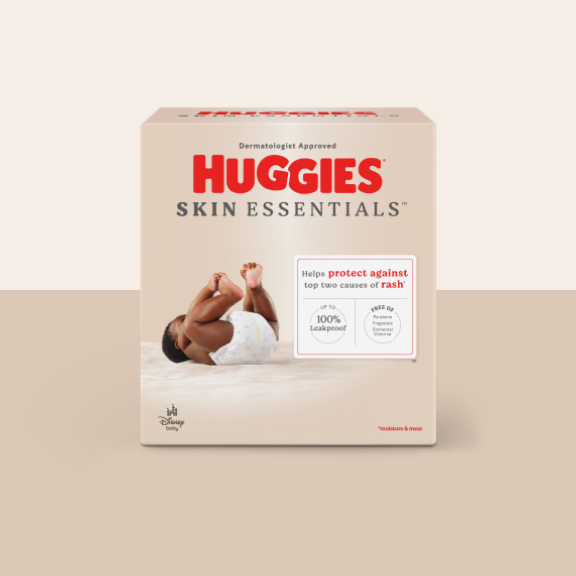Ouch, my shoes are killing me!
Oh! Can I pat your belly?
Your physical changes this week
Your uterus is around the level of your navel this week. Your waist is gone and instead, you’ll find your body's width is continuous from under your arms through to your hips. If you've had a baby before, it’s likely you’re showing earlier than with your first. Those abdominal muscles have been stretched before and aren’t as tight as they once were.
Your heart has been increasing its blood pumping capacity and this week it’s managing to pump out around 7 liters of blood every minute. Because of the effects of your pregnancy hormones, your blood vessels are more relaxed to allow for extra blood flow. This means you may be developing varicose veins or even hemorrhoids. Don’t be horrified. These enlarged veins usually decrease in size after you give birth and don’t generally cause ongoing problems.
You may be developing a heat rash under your breasts, in your armpits, or between your legs. Your inner body temperature is a couple of degrees warmer than usual, so you’re probably sweating more than usual. Avoid wearing anything other than cotton underwear next to your skin and make sure the size is right. Go for comfort rather than look. Chloasma, the darkly pigmented facial mask of pregnancy, occurs in around 50-75 percent of pregnant mothers, so consider yourself lucky if you don’t get it. Also known as the butterfly mask, it tends to follow a pattern similar to a butterfly's body over the nose, with the wing formation over the cheeks. Chloasma usually resolves after birth but if it’s worrying you, think about using concealer or foundation to cover it up. Make sure you wear a hat and sunscreen if you're going outdoors. UVA and UVB rays will make pregnancy mask worse.
You could feel dizzy or faint this week, a common experience in the second and third trimesters. Avoid standing still for long periods or standing up quickly if you've been lying down. Allow your body to adjust as you go from being horizontal to vertical.
Your emotional changes this week
If this was the week of your ultrasound, you could be feeling more emotionally connected with the baby than you have been. Many women hold back until the 20-week scan confirms that all looks normal with their baby. This is completely understandable. Seeing your baby's face for the first time is a momentous occasion, even if it’s through a screen.
If you find yourself needing to break into a sprint, or you’re in a potentially risky situation, you’ll probably find your hand automatically goes down to support your belly. Get used to these instinctive protective maneuvers which seem to bypass the thinking centers of your brain as you go on autopilot. There’s usually a very good reason for them.
Is your partner feeling a little detached? Make sure he comes to the ultrasound and as many prenatal appointments as possible. Although you may be 100 percent baby focused, try to remember his experience of the pregnancy so far is only through your symptoms. Give him time to develop his own relationship with the baby and don’t push him too hard or fast.
Your baby's changes this week
This week your baby is around 6½ inches long from its crown to rump (bottom). Its skin is still coated in vernix, the white greasy coating which protects your baby's tender skin from drying out.
Your baby is surrounded by around 10 ounces of amniotic fluid this week. The temperature of the fluid is maintained at a slightly higher degree than your own core temperature. This helps the baby to stay warm.
Your baby’s moving a lot this week and you’re becoming increasingly aware of the movements. They aren’t strong enough to cause you any discomfort and are a lovely way of reassuring you that the baby is doing well.
Hints for the week
Hemorrhoids can be minimized by ensuring you have a high fiber diet and drinking lots of fluids. Bran-based cereals are valuable as are fruits, vegetables, grains, legumes and beans. Avoid straining when you are having a bowel movement or sitting on the toilet for long periods. If you feel the need to move your bowels, don’t put it off. Ignoring your body's signals can lead to problems long term so if you need to go, just do it!
Sign up for prenatal classes if you haven’t already done this. Even if you've had a baby before, consider a refresher course if you think you’ll benefit. Otherwise, spend some hours online with reputable sites and read up on pregnancy and birth. It pays to be informed and to be an advocate for your own health and your baby’s.
Look after your back. Avoid lifting heavy objects and twisting as you lift. Backache and strain is common during pregnancy and it’s easier to avoid a back injury than to recover from one. If you do have a sore back try warm baths or showers, massage, heat packs, and gentle stretching. Consider seeing a physical therapist if these natural approaches don’t provide relief. There are specific exercises you can do to strengthen and support the muscle groups in your spine.
Week 21 next.
For more information see Pregnancy Week by Week.
The information of this article has been reviewed by nursing experts of the Association of Women’s Health, Obstetric, & Neonatal Nurses (AWHONN). The content should not substitute medical advice from your personal healthcare provider. Please consult your healthcare provider for recommendations/diagnosis or treatment. For more advice from AWHONN nurses, visit Healthy Mom&Baby at health4mom.org.










